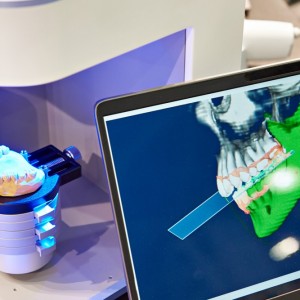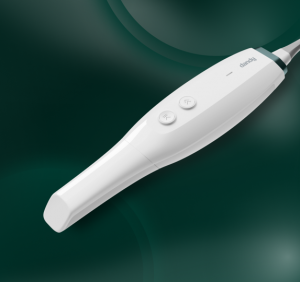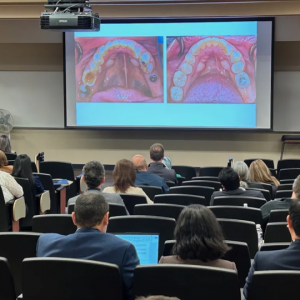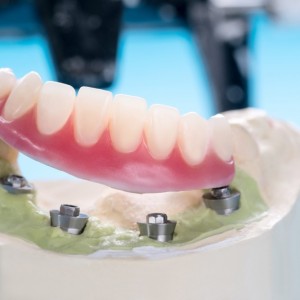
Resistance to the cyclic fatigue of two CAD/CAM ceramic materials: preliminary analysis on simulators
Massimo Gagliani
Premolars are the most difficult elements to restore and have a high failure rate due to their anatomical position and the forces they undergo.
Therefore the choice of the material to restore these elements must be well thought out. With the introduction of the CAD / CAM system, different materials are available with the aim of ensuring resistance and aesthetics to the teeth. Among these we find lithium disilicate (LD) and ceramic infiltrated polymer (PICN).
But which of these two guarantees a better resistance to cyclic fatigue?
Homaei et al in their study try to answer to this question and they investigated the resistance to cyclic fatigue of restored premolars with these two different types of dental CAD/CAM ceramics.
Materials and Methods
A restored premolar with a full coverage crown has been digitized. The volumetric shape of the teeth and crown tissues has been recreated in Mimics®. They were transferred to IA-FEMesh for mesh generation and the model was analyzed with Abaqus. Through these software combinations it was possible to simulate a clinical situation to assess the distribution of stress on the restorations themselves, subsequently it was possible to hypothesize the duration of the premolars restored with the two different materials
Results
The expected duration was 1,231,318 cycles for LD with a fatigue load of 1,400 N, while that for PIC was 475,063 cycles with a load of 870 N. The peak value of the maximum principal stress occurred in the occlusal contact areas ( antagonist) (LD: 172 MPa and PIC: 96 MPa) and in the central fossa (LD: 100 MPa and PIC: 64 MPa) and for both ceramics these were the areas of failure most often seen in the experiment. As far as the adhesive layer was concerned, the maximum shear stress was observed in the shoulder area (LD: 53.6 MPa and PIC: 29 MPa).
Conclusion
The resistance to cyclic fatigue and the failure modes of the ceramic crowns are better in lithium disilicate group than PICN ones. So, for what concern premolars restorations, it's better to choose LD than PICN.
For additional informations: Numerical fatigue analysis of premolars restored by CAD/CAM ceramic crowns
 Related articles
Related articles
Digital Dentistry 04 November 2025
Digitalisation is an expanding field in dentistry and implementation of digital teaching methods in dental education is an essential part of modern education.
News 03 November 2025
Dandy, a fully digital dental lab, today unveiled two new products for digital dentistry: the revolutionary Dandy Vision intraoral scanner and the powerful.
Editorials 02 October 2025
U-M School of Dentistry hosts national symposium on digital dentistry education
The University of Michigan School of Dentistry hosted a national Digital Dentistry Educators Symposium last week that drew faculty and leaders from 35 dental schools around the country.
Digital Dentistry 29 August 2025
Digital dentistry: The new state of the art — Is it disruptive or destructive?
Summarizing the new state of the art of digital dentistry, opens exploration of the type and extent of innovations and technological advances that have impacted – and improved – dentistry.
Endodontics 15 August 2025
Feasibility of Implementing Digital Dentistry Section in Dental Clinic of a Military Centre
Digital dentistry is not the wave of the future, it is happening now. Whether a dentist embraces the new technology determines the quality of treatment and possibly his future; for this reason,...
 Read more
Read more
Prosthodontics 17 November 2025
The purpose of this report is to describe a new technique to fabricate and deliver an implant-supported fixed prosthesis to the patient on the day of surgery, and to propose a protocol for the...
Editorials 17 November 2025
The Langkamp Allison Award recognizes a Pitt Dental Medicine third-year dental student interested in pursuing a career in dental education.
Products 17 November 2025
VELMENI today unveiled VELMENI Voice, an AI-driven voice recognition tool designed to transform periodontal charting and clinical documentation.
News 17 November 2025
Angelalign Technology Inc. (6699.HK) (“Angel”) recently announced the expansion of its flexible iOrtho platform to include direct integration with the Dexis, Shining 3D, and Panda scanners.
News 17 November 2025
Following the first FDA clearance for technology that measures internal mobility in teeth, Perimetrics CEO and Chairman Robert Hayman is once again leading dentistry into a new era with InnerView, a...














